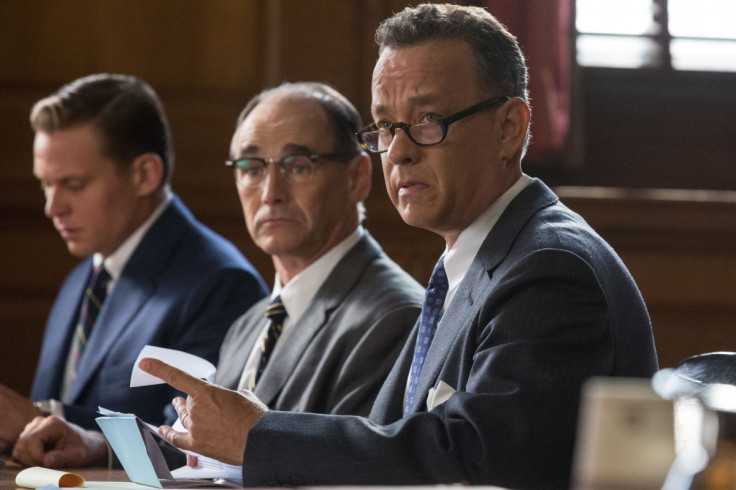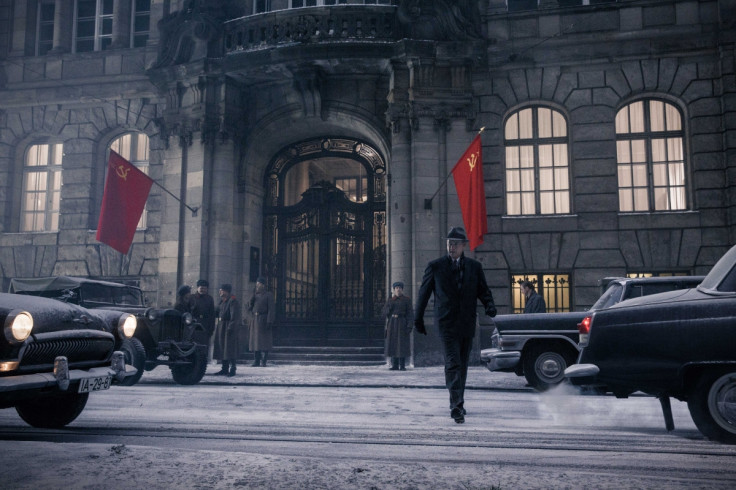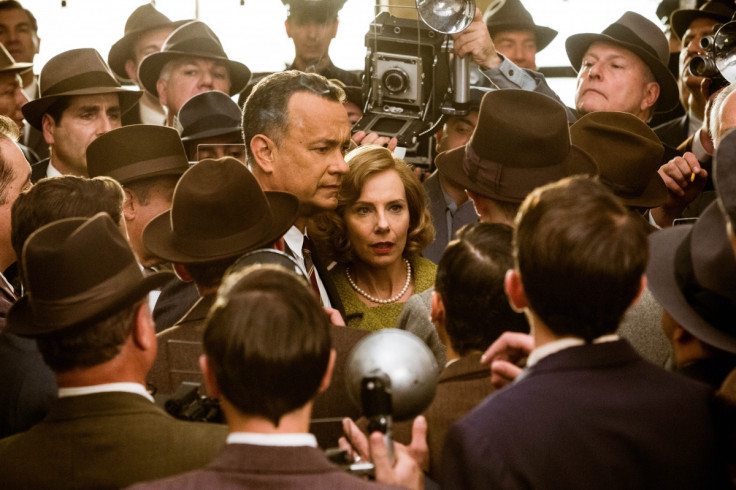Bridge Of Spies review: Tom Hanks expresses warm humanity in Steven Spielberg's Cold War drama

In their fourth film together, Tom Hanks and Steven Spielberg prove once again that they are a film-making force to be reckoned with, as they leap and bound toward some specific golden statues with their tension-filled drama based on true events, Bridge Of Spies.
At the height of the Cold War, successful insurance lawyer James B Donovan (Tom Hanks) is recruited by the CIA to defend accused Soviet spy, Rudolf Abel (Mark Rylance). Throughout the investigation, Donovan urges the system to hold Abel as leverage so they can potentially negotiate his return in exchange for any American spies that might become captured in the future.
"Insurance is [Donovan's] thing" after all, and his precursory plans appear worthwhile when a U2 spy plane pilot is captured by the Russians a few years after Abel's incarceration and hopes of a swap come to light. Donovan is then sent to war-torn Berlin to use his powers of persuasion to convince both the Soviet and German loyalists to agree to the trade.

The last time Hanks was seen on the big screen, it was also in a period piece, Saving Mr Banks, but while the clothes looked somewhat similar to this picture, his character here could not be more different – a juxtaposition really showcasing the legendary actor's talent. A bit of a caddish character, Saving Mr Banks' Walt Disney was a little slippery and even more selfish, but none-the-less overwhelmingly charming and flamboyant.
Whereas Bridge Of Spies' Donovan is a straight American arrow and hard-working family man who stands by his catchphrase "Every person matters", at every step of his unfolding new career. In fact, Donovan is such a hero that it's hard to believe that he was a lawyer... let alone a real person, as every chance he gets he exhibits a pure humanity and understanding that almost every other character in the piece is absent of in the name of blind patriotism or, simply, fear.
The only person that shares a similar level of empathy is Abel, played brilliantly by Rylance. His calm and collectedness never comes across as cold or arrogant, which it could have done every time Donovan ponders out loud why he isn't worried about his fate and he matter-of-factly answers: "Would it help?" It's not confidence that urges him to say this, but acceptance and it gives the character wonderful humility. But it's not just Hanks and Rylance that shine here.
Their likeability makes it easy to will Donovan to succeed but it's only made natural through Spielberg's unbiased storytelling and knack for picking up on moments where a light-hearted joke can be left to flourish. He so easily could have fallen into serious overtones or portraying the Russians and Germans as hammed-up enemies with his all-American protagonist saving the day, but he never comes close to doing so. In fact, he constantly draws parallels to each side, presenting the idea that each spy is simply doing their duty to their own country.
Towards the beginning of the film, we see Abel extract a piece of hidden information from inside a dollar coin, and later we are introduced to a poisonous scratcher pin concealed inside a coin used by the US. Neither points are laborious, but its evident why they made the final cut.
The script, penned by up-and-coming British playwright Matt Charman, was built upon by award-winning screenwriters Joel and Ethan Coen. Their presence is felt in the piece, maintaining its unexpected buoyancy throughout and making the whole film easier to swallow. They undoubtedly had something to do with the invention of the main comic relief aka Abel's caricature-like family, who quite clearly have never met Abel in their lives, and were solely employed by the other side to show their captured operative in more sympathetic light.
Due to its setting and grey, bleak visuals, comparison has been drawn to Tinker Tailor Soldier Spy, but while the two films rely on dialogue to keep their momentum going, they couldn't be more different in style. One revelled in confusing its audience, leaving twists hidden until it wanted to reveal them whereas Bridge Of Spies is surprisingly easy to follow as it's simply a film about a quest for fairness.
"Aren't you curious?" Abel asks Donovan during his representation, wondering whether the moral lawyer wants to know whether his charges are in fact based on truth. To which he responds sincerely "no". You realise as a viewer, you don't really care either and so the movie avoids ever getting bogged-down in the heavy law stuff.

However, while interesting stuff if one is keen on history, those expecting more of a thrilling spy caper would be left wanting more after the exciting opening scene that follows a then free Abel around the streets of New York City as he is seemingly unknowingly pursued by American agents.
As much as the tension builds at first, the ante diminishes somewhat when Abel's sentencing is announced a third of the way into the movie. There's moments where you think that Hanks' Donovan is going to launch an all-out condemning of the verdict, like after he discovers that the agents that searched Abel's dwellings had no warrant to do so and therefore the evidence against him was wrongly put forward, but that's all blown under the carpet far too quickly and lays a little stagnant in order to get to the crux of the movie – the exchanges. But do try to maintain your attention, as that's when the true heart and emotion emerges.
© Copyright IBTimes 2024. All rights reserved.






